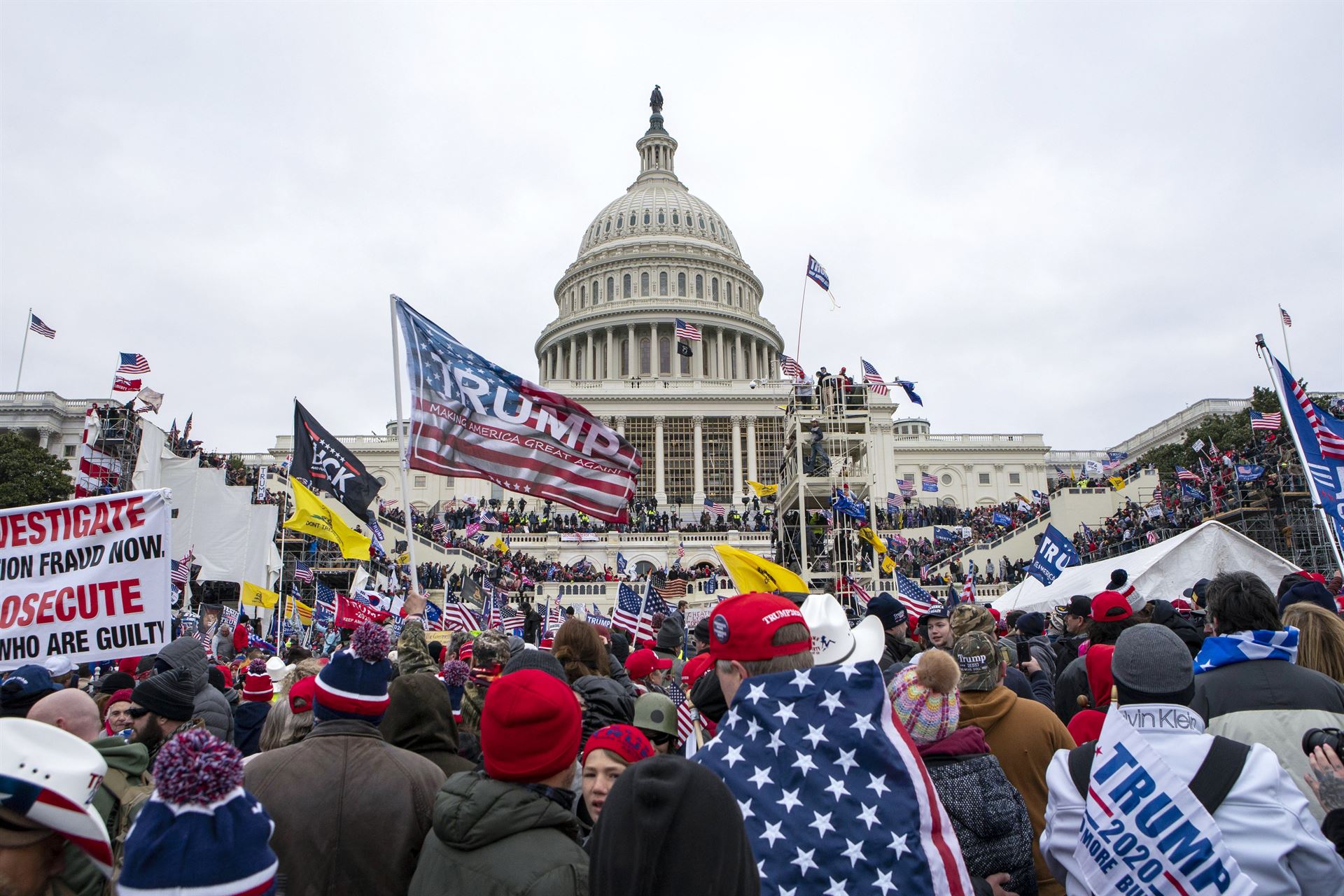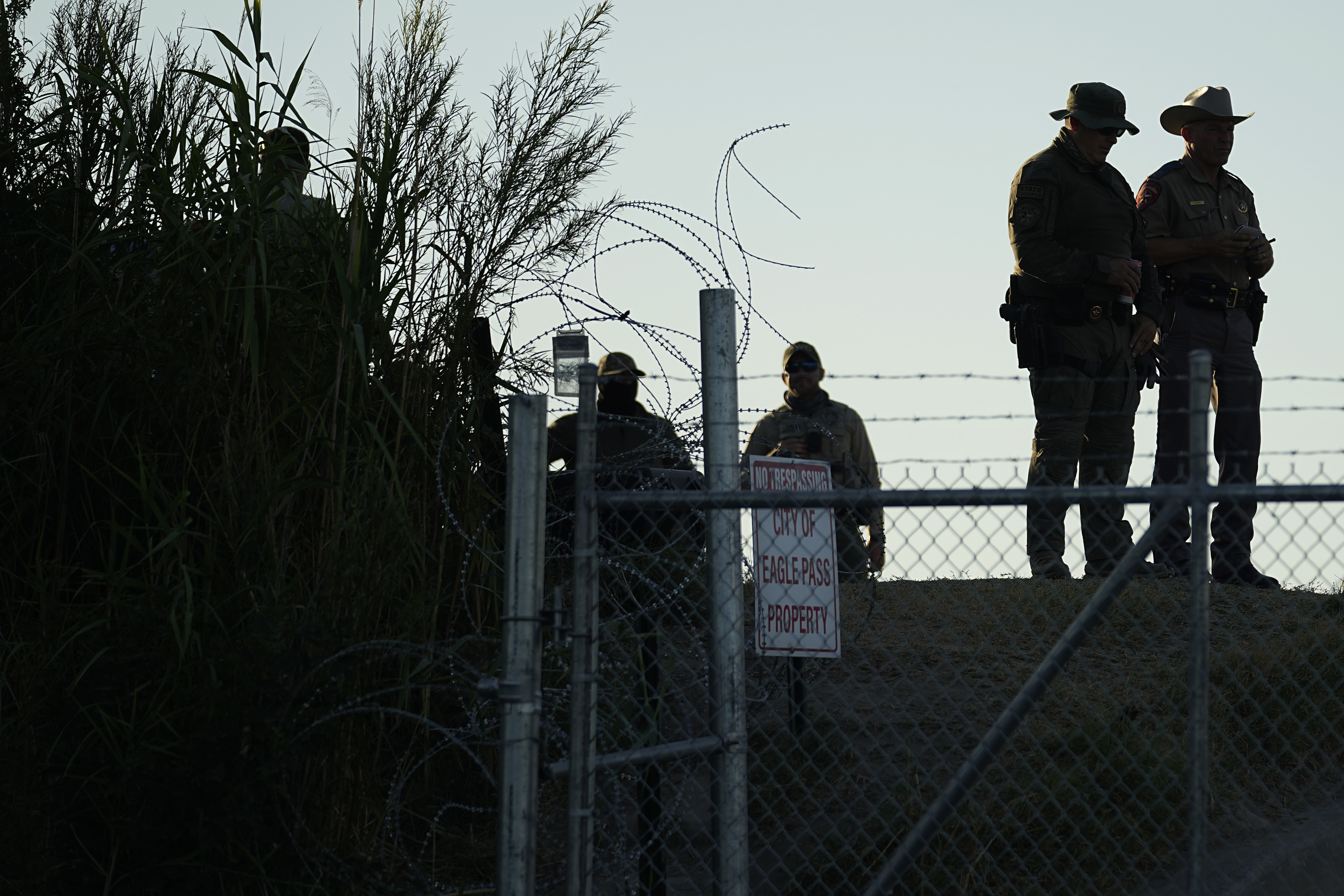
WASHINGTON - President-elect Donald Trump said in an interview that aired on Sunday that he would act on his first day in office to pardon rioters involved in the Jan 6, 2021 Capitol attack, further building expectations for a broad granting of clemency.
"I'm going to be acting very quickly, first day," Trump said on NBC News' "Meet the Press with Kristen Welker" when asked when he planned to pardon his supporters who were charged in the attack aimed at overturning his 2020 election defeat.
Trump told Welker that there could be "some exceptions" to his pardons if the individuals had acted "radical" or "crazy" during the assault, which left more than 140 police officers injured and led to several deaths.
ALSO READ: Trump seeks to disqualify judge in federal election case
But Trump described the prosecutions of his supporters as inherently corrupt and did not rule out pardoning the more than 900 defendants who had already pleaded guilty, including those accused of acting violently in the attack.
"I'm going to look at everything. We're going to look at individual cases," Trump said.
The comments - Trump's most detailed on the issue of pardons since he defeated Vice-President Kamala Harris in the Nov 5 election - will likely add to already high expectations for broad action once Trump is sworn in to office on Jan 20.
"He continues to put out the public message closer and closer to what the J6 community is asking for, which is clemency for all of the January 6ers," Suzzanne Monk, a longtime advocate for defendants charged in the riot, told Reuters.
Hopes among Jan 6 defendants and their supporters for broad-based clemency have been growing over the past week after President Joe Biden pardoned his son Hunter, marking a reversal from his pledge not to interfere with his son's criminal cases.
Biden said Hunter deserved a pardon because he was the victim of political persecution, an argument Trump will likely use to justify mass pardons. Some Biden critics said his decision would lessen the political cost for Trump.
READ MORE: White House defends Biden's Hunter pardon as criticism mounts
Kimberly Wehle, a professor at the University of Baltimore School of Law, said she was worried broad amnesty for Jan 6 defendants would serve to wrongly incentivize the fomenting of unrest or even violence on behalf of a president.
"The idea that he's going to reward people for violating the law on his behalf in connection with an attempt to overthrow legitimate election results... that's not precedented," said Wehle, author of a recent book on presidential pardon power.

'Nasty system'
In what has been billed as America's largest-ever criminal investigation, at least 1,572 defendants have been charged in the Jan 6 attack, with crimes ranging from unlawfully entering restricted grounds to seditious conspiracy and violent assault.
Of that total, more than 1,251 have been convicted or pleaded guilty and 645 have been sentenced to prison, with punishments ranging from a few days to 22 years, according to the latest data from the Justice Department.
John Pierce, a lawyer who has represented dozens of Jan 6 defendants, urged Trump to issue a blanket pardon for all who were charged with participating in the riot.
ALSO READ: US Capitol attack: Jury convicts Proud Boys members
"I just don't know how you do it otherwise," he said, noting that it would be difficult to parse which conduct out of the scores of cases that have already worked their way through the legal system would merit a pardon.
"I think you would see a lot of unhappy people in the January 6 community" if pardons were granted on a case-by-case basis, he said.
In the NBC interview, Trump lamented those held for long periods of detention, saying they were being kept in "a filthy, disgusting place that shouldn't even be allowed to be open." He described them as being victims of a "very nasty system."
Attorney Norm Pattis believes pardons should cover his clients, Zachary Rehl and Joseph Biggs, two former leaders of the Proud Boys militant group sentenced to 15 and 17 years in prison after a jury convicted them of seditious conspiracy.
READ MORE: Trump's impending return to White House brings criminal cases to a halt
Pattis said Trump, in promoting the idea that the 2020 election had been stolen from him through widespread fraud - an assertion for which there is no evidence - prompted his clients to believe that they had to take drastic action.
"He needs to own the fact that he created a tremendous sense of expectations with his claims about a stolen election, and people responded to him as President of the United States," Pattis said. "I would hope that he would pardon broadly."
Pattis said it was unclear how Trump might draw a line excluding some defendants from clemency due to acts of violence.
Jake Lang, a New York man who was charged with assaulting police officers and has been held in jail prior to trial, said he was hopeful he would be swept up in a blanket pardon.
"I think on Jan 20, 2025 we are going to see a similar situation to Hunter Biden," Lang said in a phone interview. "Everybody's pardoned, full exoneration. Get them all out of prison and get this thing over with, so that we can start the national healing process."

Meanwhile, Trump aims to deport all immigrants in the US illegally over his four-year term but wants a deal to protect so-called "Dreamer" immigrants, he said in the interview.
Trump also said he plans to take executive action on his first day in office to try to end birthright citizenship, which confers citizenship on anyone born in the US regardless of their parents' immigration status.
ALSO READ: Focus on illegal immigration: Trump calls migrants 'animals'
Trump, a Republican who won a second term in the White House promising mass deportations, is expected to declare illegal immigration a national emergency when he takes office on Jan 20 and draw on resources from across the federal government to support a wide-ranging crackdown.
The US Department of Homeland Security estimated some 11 million immigrants were in the US illegally as of January 2022, although the figure is likely higher today. In the NBC News interview, Welker asked Trump if his plan was to deport everyone without legal status.
"I think you have to do it," Trump said. "It’s a very tough thing to do. You know, you have rules, regulations, laws."
READ MORE: Biden offers path to citizenship to spouses of US citizens
Trump said he wanted a deal to protect "Dreamer" immigrants brought to the US illegally as children, saying Republicans are open to the idea.
During his 2017-2021 presidency, Trump tried to end a program that provides deportation relief and work permits to the immigrants, but was rebuffed by the Supreme Court.
Trump's plans to try to end birthright citizenship will likely face legal challenges. The right stems from an amendment to the US Constitution and is supported by 1898 Supreme Court precedent.
ALSO READ: Biden offers path to citizenship to spouses of US citizens
Speaking to Welker, Trump suggested Republicans may need to pursue a constitutional amendment to address the issue - an arduous process.
"We'll maybe have to go back to the people," he said.
Trump's incoming border czar Tom Homan and deputy chief of staff Stephen Miller both told Fox News' "Sunday Morning Futures" that Congress should provide a major funding increase for immigration enforcement.
The pro-immigration American Immigration Council estimated that deporting all immigrants in the US illegally over more than a decade would cost $88 billion annually.
READ MORE: Mexican president says ready to protect migrants under US deportation
Homan said the minimum needed would be near that amount.
"We're going to need as much money as Congress can get us," he said.


